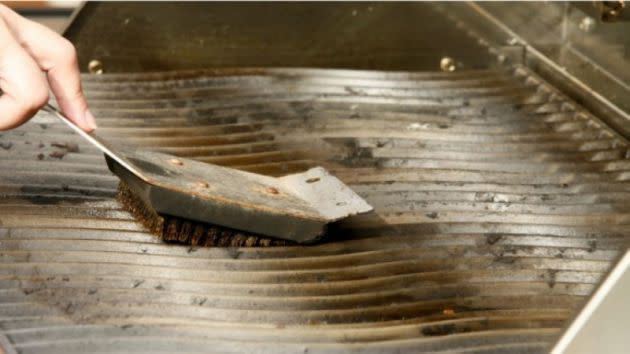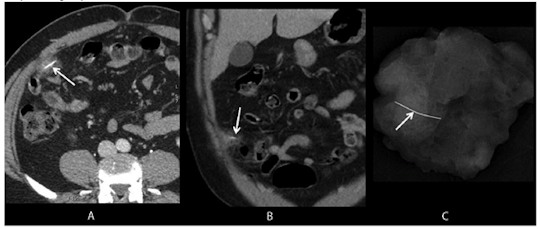Wire-bristle barbecue brushes pose summer health hazard

As the weather warms up across the country, Canadians are rushing outside to throw their meats on the grill and kick of the barbecue season (actually, let’s be honest, most of us have had the barbecue fired up since March Break).
But with those delicious grilled items comes an unexpected hazard, one that has been flagged as a growing concern over the last couple of years: wire bristles from barbecue cleaning brushes ending up on food.
Last summer, a woman in Wallingford, Conn. ate a burger cooked by her husband on the barbecue, and told Fox59 she immediately felt something was wrong. Less than 48 hours later, Cheryl Harrison was rushed to hospital, and had emergency surgery to remove a thin wire which had dislodged from the wire cleaning brush used to clean the barbecue.
“It was just a pain that I have never felt before,” Harrison told Fox. “I felt my stomach was bloated…extremely tender to the touch. You could not even push on anything – just hurt my stomach.”
Harrison’s case isn’t an isolated one. In fact, in 2012, the CDC identified it as such a serious issue they issued a report outlining six cases over a one year period of people ingesting pieces of wire that had come off a grill cleaning brush.
The report says that three of the cases saw people experience severe pain in their neck when they swallowed the bristle, while others experienced severe abdominal pain, as the wire ended up in their colon or small intestine.
Finding the bristles can be challenging, the CDC says, because the oral contrast normally used on CT scans will often obscure the bristles on the images. The best advice, the report notes, is for people to be aware of the small bristles becoming stuck on the grill, and making consumers, manufacturers and doctors all aware of the potential hazard that they pose when the correct precautions are not taken.

Andrea Alden, digital content writer and food blogger for grill company Napoleon says the secret to keeping wire out of your food is as simple as checking your brush carefully before using it.
“It comes down to proper maintenance,” Alden said to Yahoo Canada. “Always make sure your grill brush is clean and gunk free. If you start noticing that it looks gunked up and bristles are bent, it might be time to replace it.”
Barbecue company Weber has also identified some tips to help keep your grilling safe and hospital-visit free:
Inspect your grill brush for wear and tear. It should be thrown away and replaced if the bristles are clogged with grease or worn down.
The grill brush head, where the bristles attach, can become warped or split; if that’s the case, throw it out and replace it. There’s a chance that bristles can detach from the misshapen head.
To test your grill brush, use pliers to tug with moderate pressure on the grill brush bristles. Replace your brush if any come loose.
To avoid issues with dislodged bristles altogether, you can look for alternatives to wire brushes: abrasive pads and spray-on cleaners, or even balled-up tinfoil in a pinch (generally, these methods should only be used on a cooled grill).
“Another thing you can do to help clean the grill is pop your grill onto high when you’re done cooking so you can vaporize most of the junk,” Alden advises. “You can also put a piece of tin foil on when you do that to help reflect back the heat, which will help loosen up the stuck-on food.”

